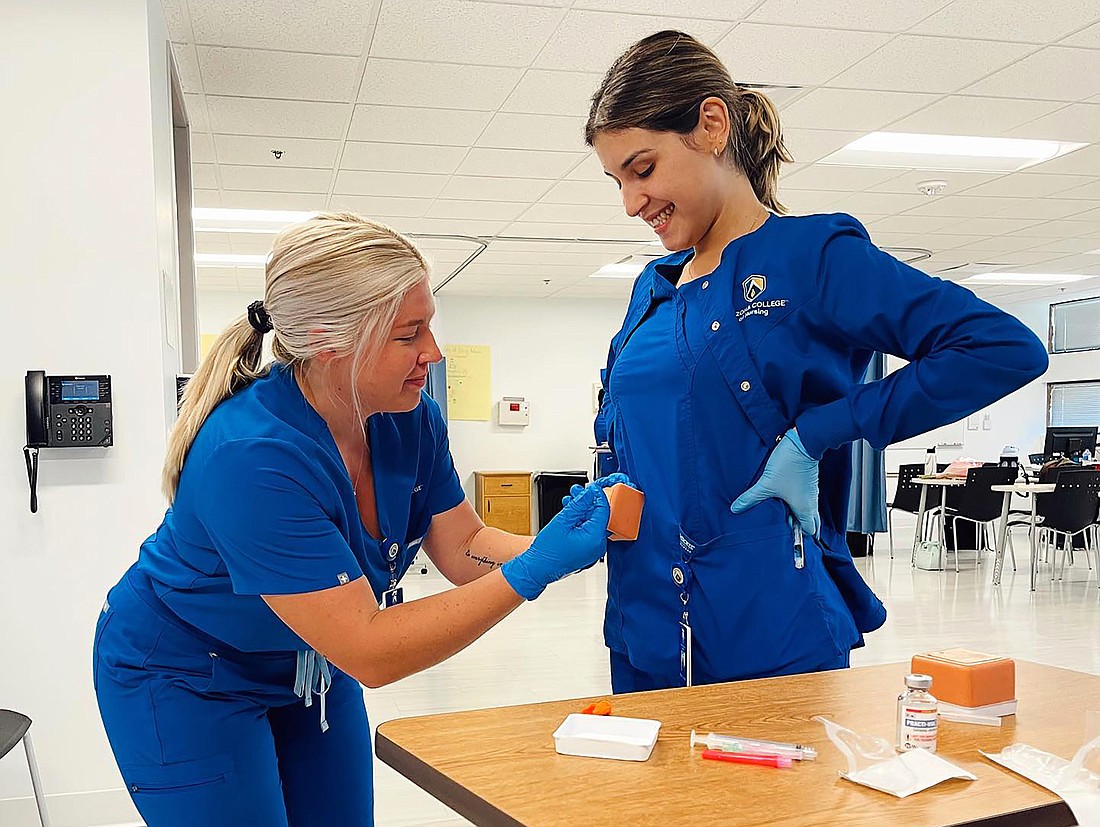- April 4, 2025
-
-
Loading

Loading

Although Lakewood Ranch Medical Center is one of the many hospitals across the country that experiences nursing shortages, help is on the way.
In August, Arizona College of Nursing will begin to address that shortage in Florida by opening a campus, its 12th overall, in the Cooper Creek Office Building in University Park.
The new nursing school will serve students in Sarasota and Manatee counties.
Jason Dunne, the vice president of operations for Arizona College of Nursing, said the college chose to open more campuses in Florida because of the population growth.
“We have the baby boomer generation that continues to age and retire and at the same time the general population is aging,” Dunne said. “More people are moving into the state, nurses are retiring, which is causing an increased demand for nurses, and nursing school enrollment is not keeping pace with the demand.”
Judy Young, the chief nursing officer for Lakewood Ranch Medical Center, said the local hospital was struggling with the nursing shortage before the COVID-19 pandemic began in March 2020.
“The pandemic only accelerated the need, not only in hiring, but also in recruiting people into the profession,” Young said. “Nursing is a wonderful career that is both rewarding and fulfilling, and I would strongly encourage anyone who has an interest in healthcare to consider this as a career option.”
The campus will be the third Arizona College of Nursing in Florida, with other campuses in Tampa and Fort Lauderdale.
“We believe we have a strong product of a holistic model of nursing education and support, and we believe we can create a strong pipeline in Florida by strategically placing our campuses in various geographic areas throughout the state,” Dunne said.
Arizona College of Nursing will enroll about 30 students in its first year on the local campus, and classes will begin in August. Students will have the opportunity to enroll in the college six times per year for general education courses and three times per year for nursing core courses.
Students will go through an accelerated Bachelor of Science in nursing program to receive their degree in three years or less depending on whether they transferred credits before enrolling.
Dunne said the program only takes three years because classes continue through the summer rather than having a summer break.
“It all depends on the type of student that comes into the program,” he said. “They can come directly from high school with no credits and no college experience or they can come directly to us from a community college. Some have bachelors or associates degrees and some are second-career students.”
Students will spend their first year taking general and healthcare foundation courses. Students will finish those courses in their second year and start nursing core courses and clinical experiences before finishing those courses in their third year and participating in clinical rotations.
Students will have hands-on learning experiences not only through their clinical rotations but also in the simulation lab where they can make mistakes and hone clinical judgment and critical thinking skills.
“It creates a wonderful, safe environment for students to go in, practice the skills, pull together the theory and work through real-life patient case scenarios,” Dunne said. “They can make mistakes and learn from their mistakes and hone clinical judgment and critical thinking skills so when they’re actually working with patients, they’re solid, they’re working as a part of the healthcare team and contributing positively to the healthcare outcomes of the patients.”
Arizona College of Nursing is developing partnerships with facilities under the Healthcare Corporation of America and other medical agencies in Sarasota and Manatee counties where students will be able to conduct their clinical rotations.
“One of the roles of nursing education or any healthcare education institution and facilities is to truly help communities thrive by delivering nurses who are homegrown, who will work within their communities and serve their communities,” Dunne said.